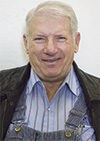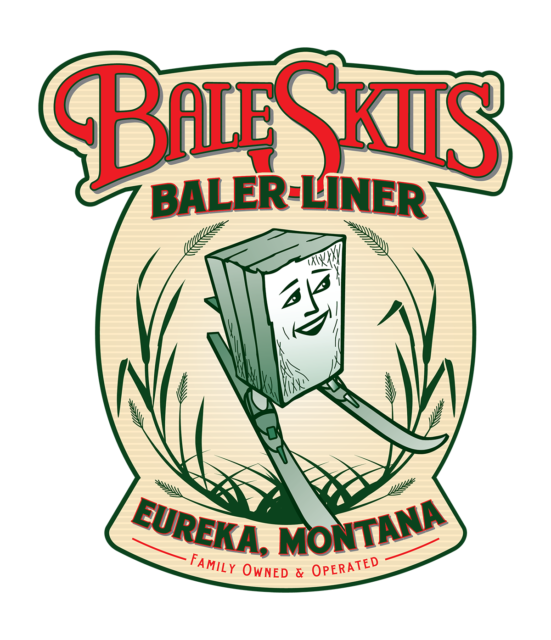Seems the weather had much to do with the regional hay market. If the Columbia Basin in central Washington state had decent weather during hay-making time, the price for premium dairy hay would moderate so that Idaho hay was hard-pressed to compete pricewise.
We ended up hauling to the coast mostly in the winter. This gave us experience crossing the Blue Mountains in Oregon and the Cascades and coast ranges closer to the coast. The standard joke about the weather was about the time the weatherman had successfully forecast 17 of two snowstorms. Every trip was an adventure since we had neither cellphones nor the accompanying 24-7 weather information. We picked up, quickly, that time well spent included the time waiting for a sand truck before proceeding.
Winter driving gave us a rapid expertise with tire chains and hay tarps. We learned the only thing worse than having to chain up was having to chain up after we were stuck. Leo would always throw on two pair of three-railer chains. He said that almost guaranteed he’d not have to deal with chains again until it was time to take them off. He was usually right.
It was actually February when we hauled into a new customer at Rowland, Nevada. The plan was to drive in on frozen roads, unload and drive out on those same frozen roads – 45 miles from leaving pavement to the ranch. One of the ranchers met us at Grasmere, Idaho, to lead us in on the first run. The ranch called the Grasmere store just after we were out of sight on the way to the ranch. A chinook (warm) wind had started blowing, and they wanted us to stop. About 25 miles in, we had to chain up due to mud.
Ten miles farther and Leo, in the lead truck, dropped his trailer on a flat spot in the hopes that without it he could break trail for the second truck. Five miles later, the second trailer was also left, about the time we met another pickup coming from the ranch. When Leo’s truck spun out in the mud on flat ground, we had no choice but to abandon the trucks and ride in the pickups to the ranch. About the second day, we got the trucks to the ranch and unloaded. We spent half a day repairing tire chains.
We were sure the road-grader crew would hate us for tearing up the road. On a later trip, the rancher said they were actually happy. They were about to be laid off for lack of work because everything was frozen solid, so they were happy for thawed ground wherever it was, no matter how bad the roads were torn up.
The area halfway between Bruneau, Idaho, and Elko, Nevada, seemed to run on a seven-year drought cycle. The cattle and sheep ranchers tried to not buy outside hay but, after having a couple years of hay on hand when the drought hit, some always needed hay in a hurry. In the middle of winter. It got so cold Leo said on a clear day the truck he was following was “snowing” on his truck. The moisture from that truck’s exhaust was freezing into ice crystals. From experience driving on the Alaska pipeline, Leo said that meant it was close to 30 degrees below zero. We concluded after it was all said and done we’d rather deal with cold and snow than mud any day.
The “Farewell Bend” of the Snake River in Oregon is where the Snake River turns north and heads into Hell’s Canyon. There’s an infamous Oregon weigh station that shares the name, but truckers call it “Welfare Bend” because after the boys at the scale house get through with you, you’ll be on welfare.
Downstream and just entering Hell’s Canyon is the little town of Huntington. A road goes quite a way up the canyon to a few ranches, and we hauled hay to some of the outfits. Elli got to come with me on one trip. At the last flat spot large enough to turn a trailer around, I backed the trailer off the road to a 90-degree position from the road so on the return I could just hook up and drive away. We took the truck into the ranch proper and unloaded.
This included a fairly steep climb up a frozen-over dirt road. In the hour it took to unload, the sun had melted the top inch or so of the roadway. Going back down, gravity took us faster than the tires on the truck were turning, giving us kind of a rough toboggan ride down to flat ground. Elli asked if the truck was supposed to be doing that. I said no. She said, “Then make it stop!”
As we passed through Huntington on our way home, she mused, “How’s about if I ever ride with you up here again, I just wait for you in the little café here?” ![]()












